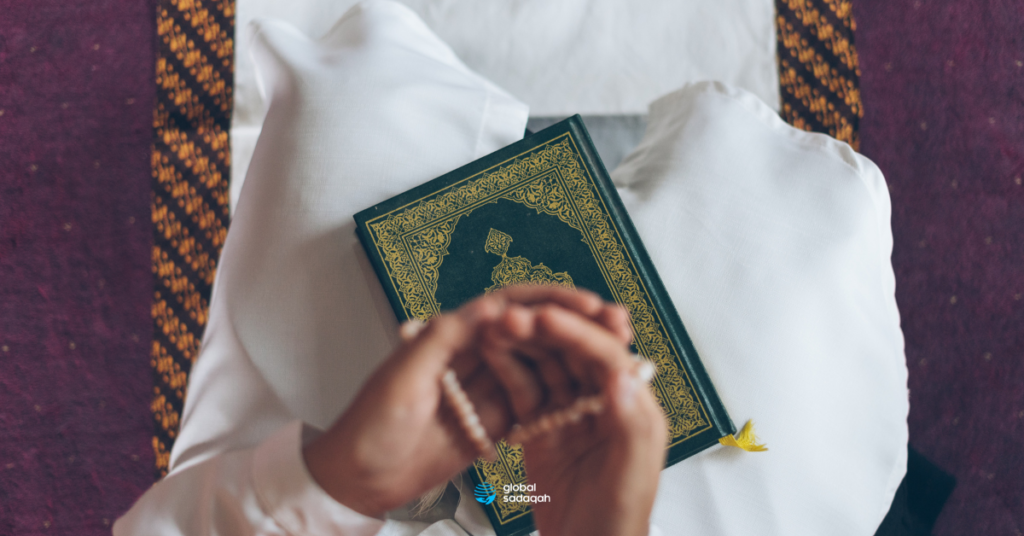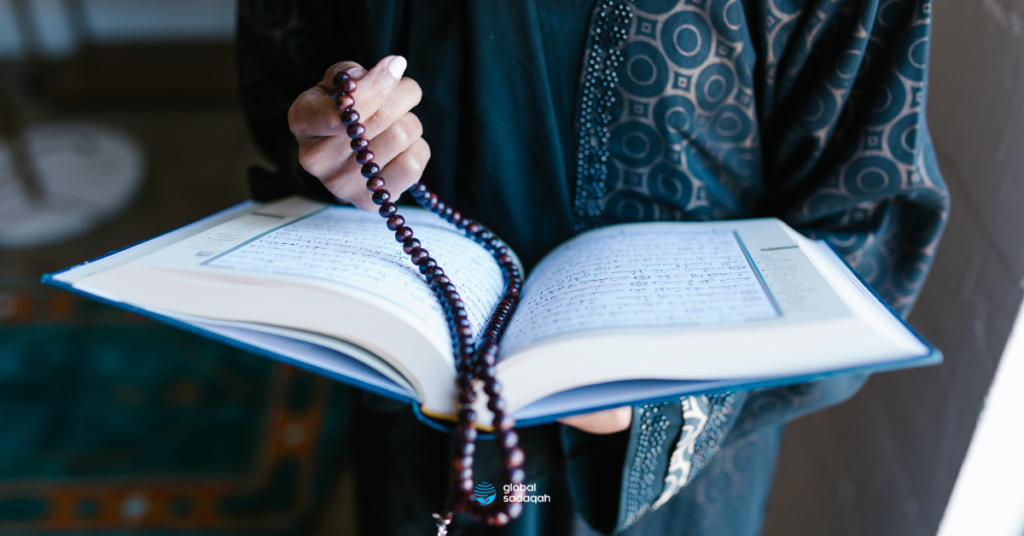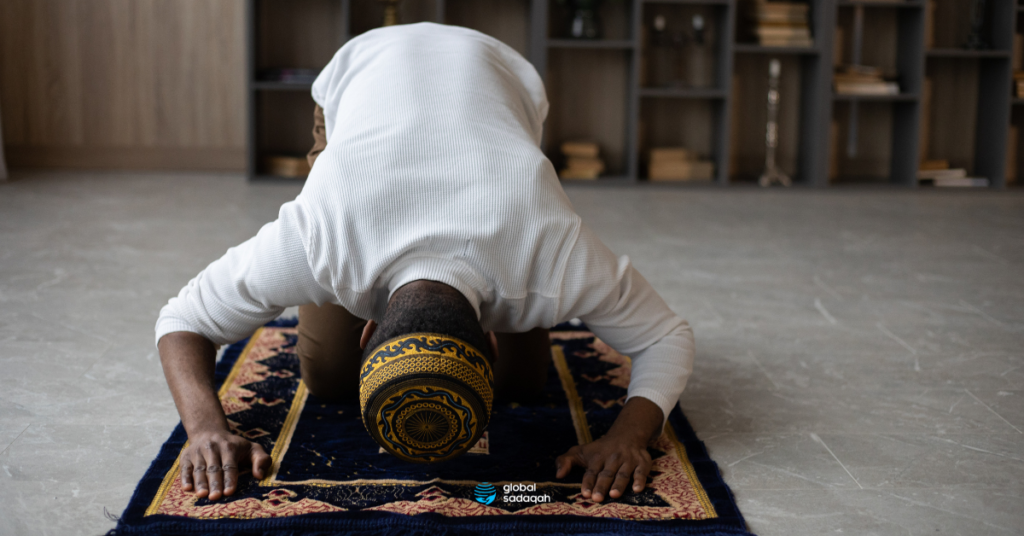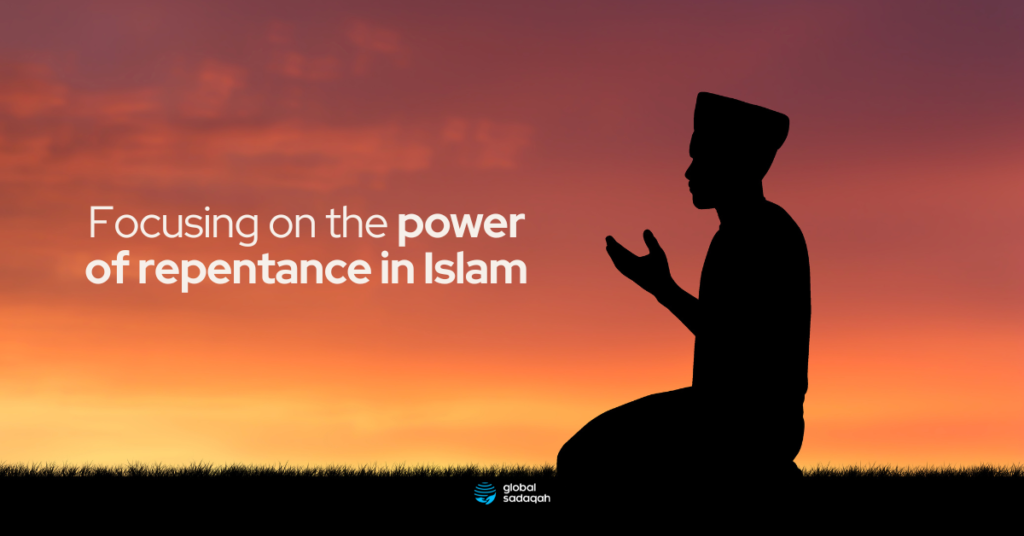The Quran urges Muslims to repent of their misdeeds. Repentance in Islam is seen as a crucial component of the religion.
Whom among us is sinless, and who among us fulfils all of the requirements placed on him by religion? Undoubtedly, we all have flaws, but what sets some of us apart from the others and elevates some of us above the rest is that the successful ones among us are those who confess their transgressions and ask Allah for forgiveness.
The Quran urges Muslims to repent of their misdeeds and elevates repentance as a crucial component of religion. Its significance is also emphasised in numerous hadiths, along with Allah’s gracious pardon of the penitent offender.
The concept of Tawbah – repentance in Islam

Tawbah, which is an act of worship, is the simple act of returning to Allah after doing something wrong. The Prophet of Allah (ﷺ) told us that if we repented of our sins, Allah, the Most Merciful, would pardon us for them. In Arabic, the word tawbah signifies “turning back” or “return.” Making tawbah from a sin therefore entails turning around and confessing your guilt.
The idea of repentance in general may be well known to most people, but the idea of repentance in Islam is much less well known and frequently the topic of misunderstandings and scepticism. Islam places a strong emphasis on repentance, which is a comprehensive concept.
The core of Islamic theology (aqeedah), a topic for jurisprudence or rulings (fiqh), and eventually in practise as an act of worship (‘ibadah) show how deeply ingrained it is inside the belief system. The internal, spiritual, and self-purification (tazkiyah) parts of repentance are equally significant.
Related: Why Mercy is Such a Central Component in Islam
Why and when we should seek forgiveness

In a nutshell, when we are conscious of our wrongdoing and are feeling repentant as a result of our knowledge of sin, we should ask Allah for forgiveness.
There is a propensity to do something that Allah has forbidden as you go about your normal life. You may have done something sinful intentionally or accidentally, and you may not even be aware of it.
The Prophet (ﷺ) frequently expressed his regret to Allah during his lifetime. The Prophet (ﷺ) would nonetheless stay up on numerous nights and make prostrations before Allah in remorse despite having been guaranteed pardon for any faults he could commit.
Tawbah can help Muslims who want to get closer to the Almighty Creator achieve all-encompassing goals with regard to their customary routines. From a personal standpoint, remorse helps the Muslim remember the magnificence of Allah and cultivates inner serenity and tranquillity.
Related: An Islamic Perspective on Hardship and Relying on Allah
Repentance in Islam is a gift from the All-Wise, who granted it in order for those who have sinned to turn to His kindness and ask for forgiveness. He did this in order to relieve His servants of the load of inner anguish, insecurity, and melancholy.
Tawbah’s broader influence on society can contribute to the development of more prosperous and tranquil localities. Everyone engaging in tawbah indicates that people are more aware of wrongdoings in society.
As long as you sincerely seek Allah’s pardon and guidance, there is no restriction on the number of tawbah you can make. Being human always involves being fallible and committing sins. However, Allah has endowed each of us with a rational mind and the capacity to change for the better.
Benefits of Repentance

1. Greater awareness
We are constantly reminded of our misdeeds by repentance. Every time we do anything wrong and have to say “Astaghfirullah,” it makes us aware of our errors. Even when you are not actively committing a sin at the time, your mind is increasingly aware of it the more you seek repentance.
2. A reminder to avoid sins
Losing the ability to discern when one has sinned is among the worst things that can occur to a Muslim. You won’t recognise the need to repent if this takes place. However, the more you repent (as a habit), the more conscious of your faults you become and the more likely you are to be resolved to avoid them.
3. A desire to be better
A Muslim who is constantly repenting and therefore mindful of their sins and their Lord would definitely grow to aspire to be a better Muslim. Knowing that what you are doing is wrong in Islam and believing that Allah (ta’ala) is watching you and that you should repent will make you fear Allah, which will motivate you to change for the better.
Related: 7 Powerful Du’as From the Quran
How to practice Tawba or repentance in Islam

1. Perform Salat Al-Tawbah
-Make Whudu
-Offer 2 Raka’at Salat
-Ask for forgiveness for the sin
Salat Al-Tawbah is a simple act of turning to Allah and asking for forgiveness.
It is narrated that Abu Bakr al-Siddiq رضي الله عنه said: I heard the Messenger of Allah ﷺ say: “There is no one who commits a sin then purifies himself well and stands and prays two rak`ahs, then asks Allah for forgiveness, but Allah will forgive him. Then he recited this verse:
‘And those who, when they have committed fahishah (illegal sexual intercourse) or wronged themselves with evil, remember Allah and ask forgiveness for their sins; — and none can forgive sins but Allah — and do not persist in what (wrong) they have done, while they know’ (Surah Aal ‘Imran, 135).” [Abu Dawud]
3. Acknowledge what you did wrong and take full responsibility
Instead of making excuses for yourself to make yourself feel better, just be honest and say, “I know what I’m doing is haram and I need to stop.” After then, proceed to the next step without lingering.
4. Make tawbah with the intention of not going back to the sin
With all of your heart and soul, ask Allah for forgiveness. Ask Him to assist you in renouncing this sin and tell Him that sometimes it’s difficult to follow the path of righteousness. Make a real effort to finally and totally abstain from that sin. Make every effort to avoid relapsing into it.
5. Do your best to stand firm on your intention
Make a resolute decision never to engage in the sin again. You must be real in your contrition, and sincerity entails feeling regret. We acknowledge that it is bad and firmly resolve that we will not commit this sin again. That doesn’t imply you won’t experience feelings of weakness or a tendency to do the sin again. This indicates that you’ll make every effort to prevent yourself from reverting to this vice.
Forgiveness and mercy are strong traits that have deep roots in the Islamic faith. Allah is the most Merciful, and he encourages us to practice patience, mercy, and forgiveness towards each other. The power of repentance in Islam can help us to grow closer to these crucial traits and guide us in the way we lead our lives.

